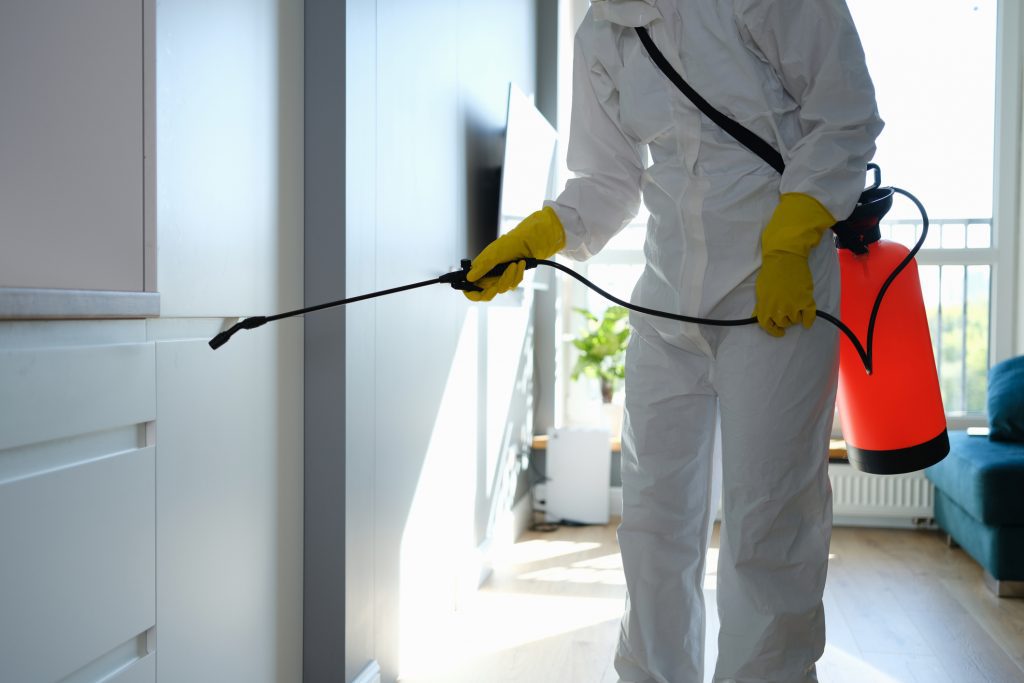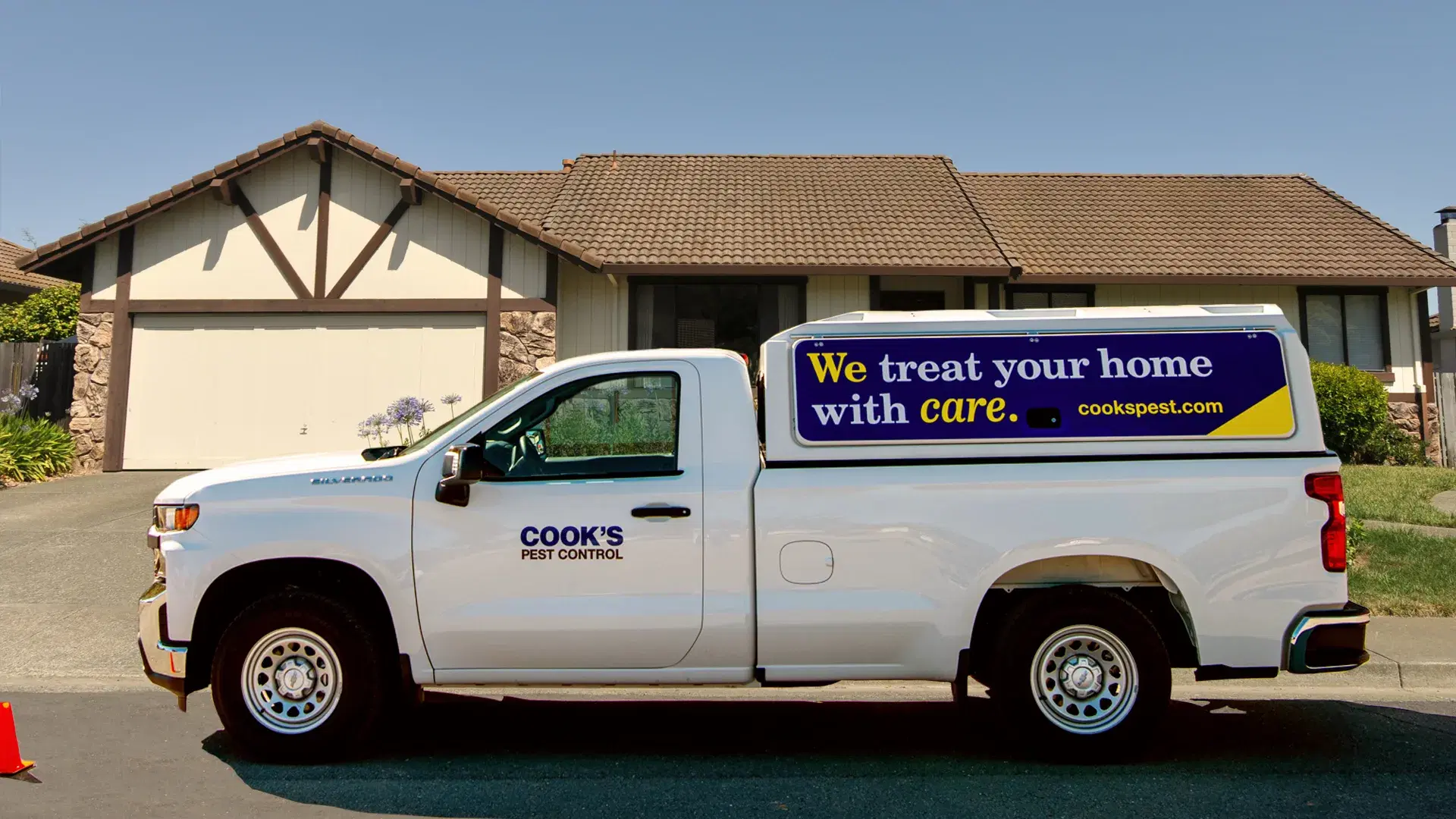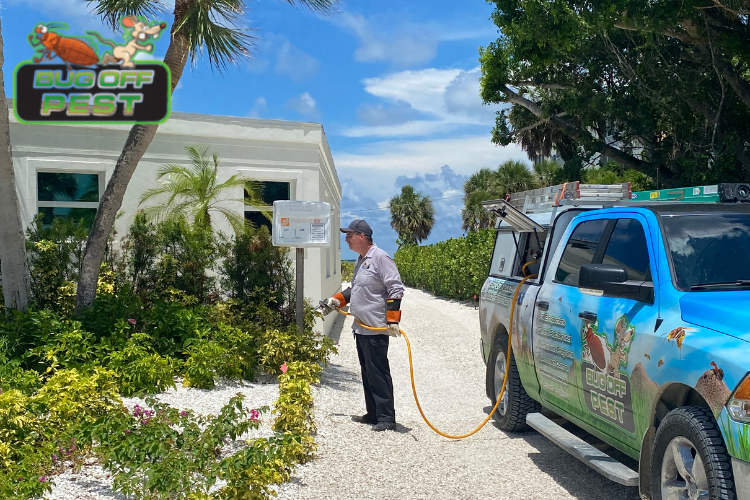Top-rated Pest Control in Charlotte County for Your Home and Company
Reveal the Importance of Parasite Control in Keeping a Healthy Atmosphere and Therapy Strategies

The Duty of Pests in Ecological Communities
Parasites, typically viewed only as hassles, play a multifaceted function in environments that is vital for preserving ecological balance. They add dramatically to various ecological procedures, consisting of pollination, nutrition cycling, and bug control. Many insect types, such as and butterflies, are crucial pollinators for a vast range of plants, which in turn supports biodiversity and food manufacturing.
Additionally, parasites work as victim for many predators, producing an important link in food internet. This interdependence ensures the survival of various types and aids manage populations within environments (Termite treatment Port Charlotte). Furthermore, decomposer pests, such as certain beetles and fungis, are crucial in breaking down raw material, hence enriching soil and helping with nutrient recycling.
Conversely, while parasites can be advantageous, their overpopulation or intrusion right into non-native settings might interfere with these ecological functions. This complexity highlights the value of understanding pest dynamics, as efficient bug administration strategies must take into consideration both their eco-friendly functions and prospective influence on human activities. Stabilizing pest presence while decreasing damage is necessary for protecting the honesty of communities and making sure agricultural efficiency.
Wellness Dangers Connected With Bugs
The existence of bugs in various atmospheres extends beyond their ecological roles, as they additionally pose considerable health dangers to human beings and animals. Lots of bugs, consisting of bloodsuckers, rodents, and insects, are providers of conditions that can have severe wellness effects. For example, rats are understood to transmit hantavirus and leptospirosis, both of which can bring about serious respiratory system and kidney issues, respectively.
Bugs such as insects and ticks are infamous for spreading out vector-borne diseases like malaria, dengue high temperature, and Lyme condition. These illnesses can result in high morbidity and mortality rates, particularly in prone populations. Furthermore, pests like cockroaches and insects can aggravate allergic reactions and asthma, adding to respiratory system troubles in individuals, specifically those with pre-existing problems.
In addition, the visibility of bugs can result in mental tension and discomfort, impacting overall health. Contamination of food and surfaces by insect droppings and stays can lead to foodborne diseases, highlighting the value of keeping hygienic problems. Understanding the wellness threats linked with pests is critical in acknowledging the requirement of effective bug management approaches to protect human and animal health and wellness.

Benefits of Efficient Insect Control
Reliable insect control is necessary for maintaining a secure and healthy atmosphere, as it constantly mitigates the many dangers connected with pest infestations. One of the primary benefits of efficient bug administration is the reduction of health threats.
Furthermore, reliable insect control safeguards property and structures from damage. Lots of insects, like termites and woodworker ants, can trigger considerable structural damages that might require expensive fixings. By proactively taking care of these invasions, services and home owners can shield their investments.
One more significant benefit is the renovation of overall high quality of life. A pest-free setting adds to mental wellness and minimizes stress associated with invasions. Moreover, effective insect control promotes a safer setting for animals and children, making sure that homes continue to be havens devoid of hazardous chemicals and disease-causing organisms.
Typical Parasite Control Methods

In the realm of insect management, different strategies are employed to combat invasions successfully. These strategies can be generally categorized right into 3 primary techniques: cultural, mechanical, and chemical controls.
Social control involves changing practices to lower pest survival, facility, and recreation. This may consist of crop rotation, appropriate cleanliness, and habitat adjustment, which collectively produce an environment less conducive to pest spreading.
Mechanical control utilizes physical approaches to eliminate parasites (Termite treatment Port Charlotte). Techniques such as obstacles, vacuum cleaners, and traps are typically made use of to straight remove pests from a location. This approach is especially efficient for taking care of rodents and pests without using unsafe chemicals
Chemical control includes the application of pesticides to manage insects. These materials can be categorized right into fungicides, insecticides, and herbicides, each targeting certain kinds of bugs. It is essential to make use of these chemicals sensibly, adhering to security guidelines and guidelines to reduce prospective injury to non-target types and the environment.
Each bug control method has its restrictions and advantages, and typically, an integrated strategy combining several approaches yields the most effective results in keeping a pest-free setting.
Lasting Parasite Management Practices
Sustainable insect management practices include a variety of techniques designed to reduce environmental impact while properly managing parasite populaces. These practices prioritize making use of eco-friendly methods over chemical pesticides, consequently minimizing the risk of injury to non-target types, consisting of beneficial bugs, wild animals, and people.
Integrated Pest Management (IPM) is a cornerstone of sustainable practices, incorporating organic, cultural, mechanical, and chemical methods to handle bugs. Organic control involves presenting natural killers or parasites to reduce onsite pest control pest populations. Social methods, such as crop rotation and polyculture, interfere with pest life process and boost environment durability.
Mechanical approaches, such as barriers or catches, can efficiently prevent insect gain access to without chemical intervention. In addition, maintaining healthy and balanced ecological communities through proper dirt management, plant health and wellness, and biodiversity can normally minimize bug concerns.
Education and awareness are important elements, equipping neighborhoods and individuals to identify pest risks early and execute safety nets. Termite treatment Port Charlotte. By promoting an all natural strategy that stabilizes bug control with eco-friendly honesty, lasting insect monitoring techniques not just shield plants and frameworks but also contribute to a much healthier setting for future generations
Final Thought

Understanding the wellness dangers associated with pests is important in recognizing the need of efficient insect management approaches to protect human and animal wellness.
Effective parasite control is necessary for maintaining a healthy and balanced and risk-free More Bonuses environment, as it continually alleviates the numerous dangers associated with bug infestations.Integrated Bug Management (IPM) is a foundation of sustainable practices, integrating organic, social, mechanical, and chemical methods to handle parasites. By comprehending the duty of pests, acknowledging connected health dangers, and using diverse emergency pest control treatment strategies, a sustainable technique to pest monitoring can be achieved. Integrated Bug Monitoring (IPM) emphasizes an alternative method that alleviates harm to helpful microorganisms while efficiently regulating parasite populations.